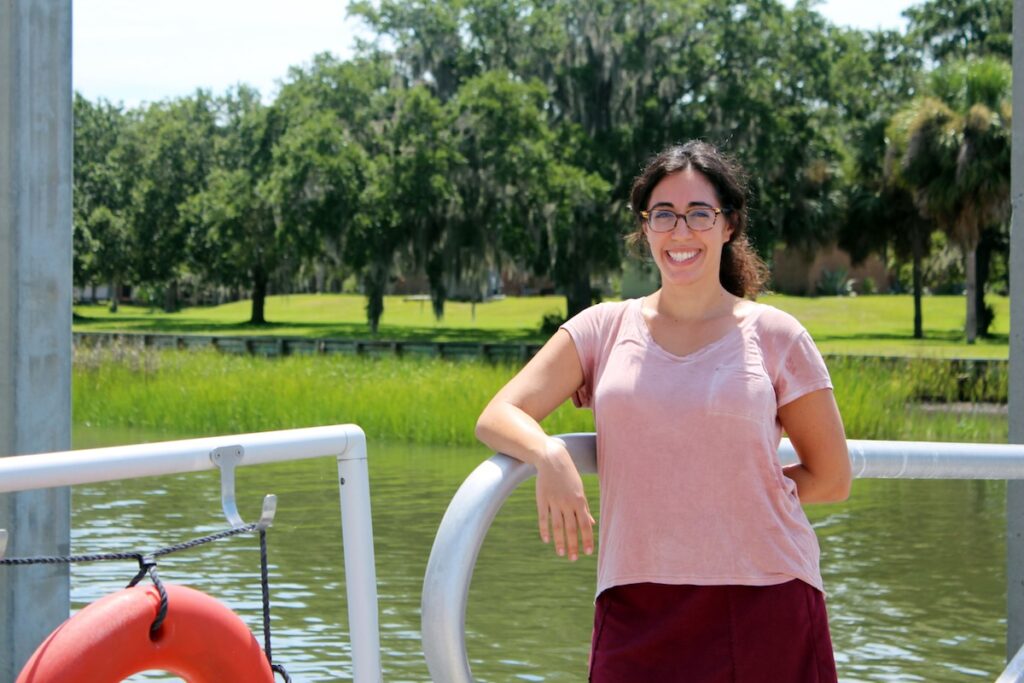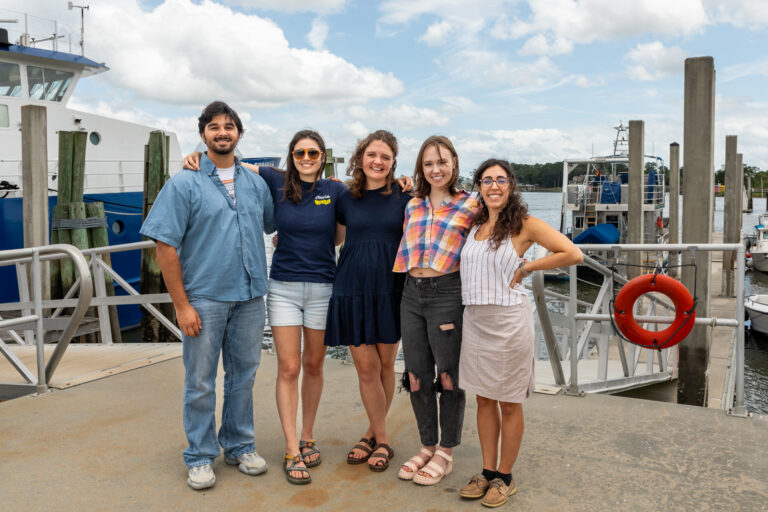
Dr. Natalie Cohen, University of Georgia Skidaway Institute of Oceanography (SkIO) scientist and assistant professor of marine sciences in UGA’s Franklin College of Arts and Sciences, has been named a 2024 Simons Early Career Investigator. The three-year grant provides $810,000 to fund her work tracking shifts in phytoplankton physiology along continental shelf ecosystems.
A researcher in biological oceanography, Cohen is interested in how microbial communities interact with their chemical environment across depths of the ocean, and how they contribute to ocean ecology and biogeochemistry. Microbial organisms like phytoplankton play a critical role in ocean carbon cycling by serving as a foundation for the marine food web and transporting carbon to deeper layers of the ocean.
“We have a continental shelf right here off the coast of Georgia that’s relatively underexplored, and we call that area the South Atlantic Bight,” Cohen said. “That’s one of the regions I’m interested in sampling.”
Collaborating with colleagues at SkIO, Cohen will gather data from the continental shelves of the South Atlantic Bight and Gulf of Mexico on cruises of opportunity. This will help her compare species that live in different ocean layers and examine their adaptations for surviving in distinct chemical environments.
Cohen acknowledged the long road and years of mentorship and support that assisted her development.
“I’m extremely humbled and grateful to receive this award. My previous NSF grants have helped give me the training and provided equipment to start doing the research that my lab now carries out,” Cohen said. “I also acknowledge the University and the Institute. They supported me the first three years before my research grants were funded and maintained the equipment needed for my research program.”

The Skidway Institute recently obtained new equipment needed for Cohen’s projects, including an Attune CytPix flow cytometer for counting and photographing cells with fluorescent properties, and a fluid-imaging instrument, FlowCam, which allows researchers to take images of microorganisms in large volumes of water. The FlowCam is being used by the Cohen Lab to monitor aquatic ecosystem health locally in the Skidaway River Estuary. Other vital equipment UGA and the Institute possess include a clean room where the Cohen Lab is able to conduct trace metal clean culture experiments, and specialized incubators used to grow organisms at their appropriate native temperatures, including those from Antarctica.
One of Cohen’s biggest resources is access to the R/V Savannah, SkIO’s newly renovated research vessel. She noted the convenience of being able to collect seawater quickly as well as being able to use the vessel for research days with students and interns.
Cohen advises multiple graduate students and looks forward to being able to use this award to bring in a postdoctoral researcher as well.
“My hope is that these new projects serve as a stepping stone for my trainees, providing additional training opportunities and resources. Ultimately my role is to ensure they’re able to address exciting scientific questions, advance their careers, and find jobs that they’re interested in following graduate school,” Cohen said.
This article, written by Emily Tingle, was originally published by @UGAResearch. It has been lightly edited for republication on the SkIO website.


